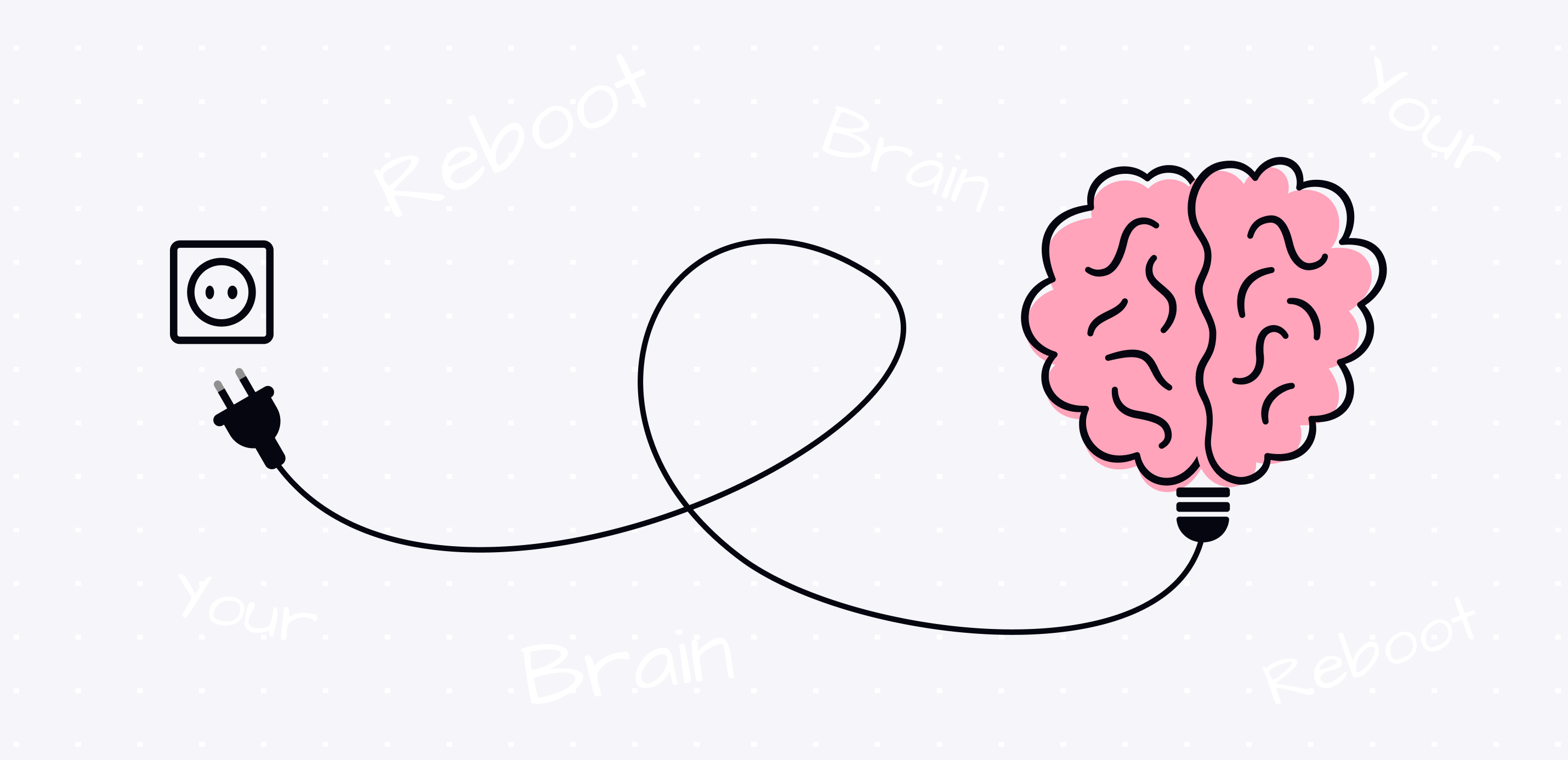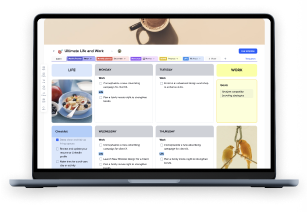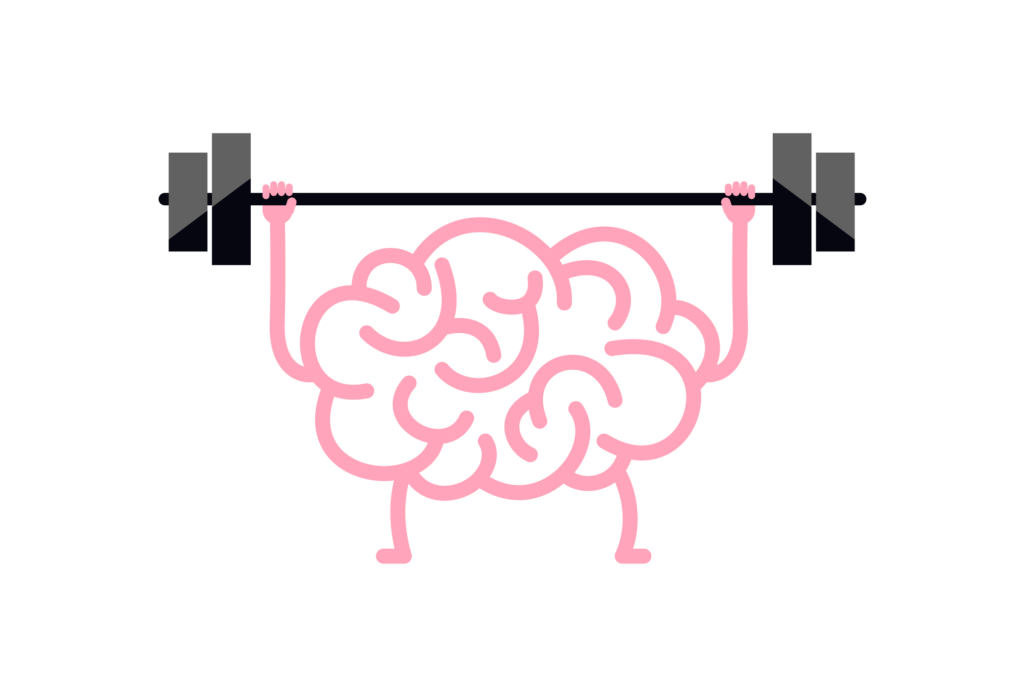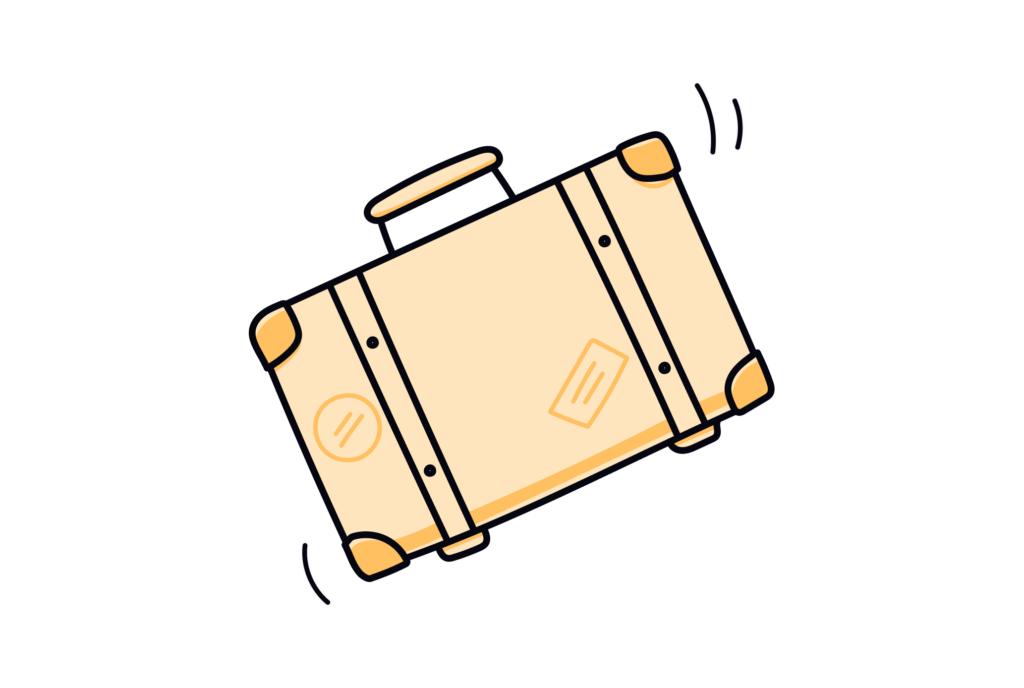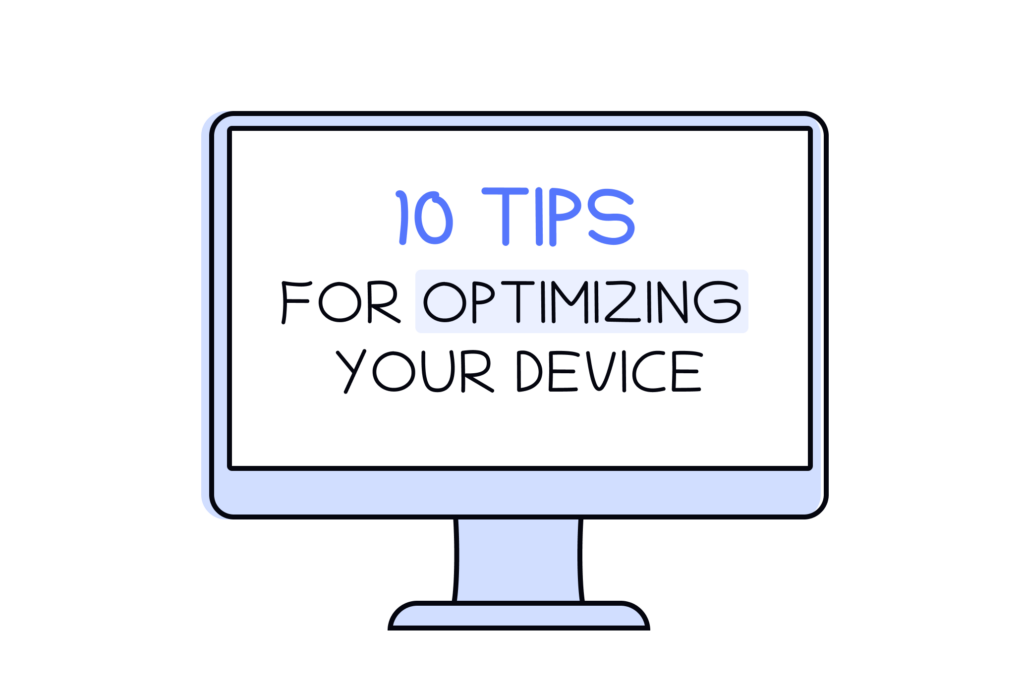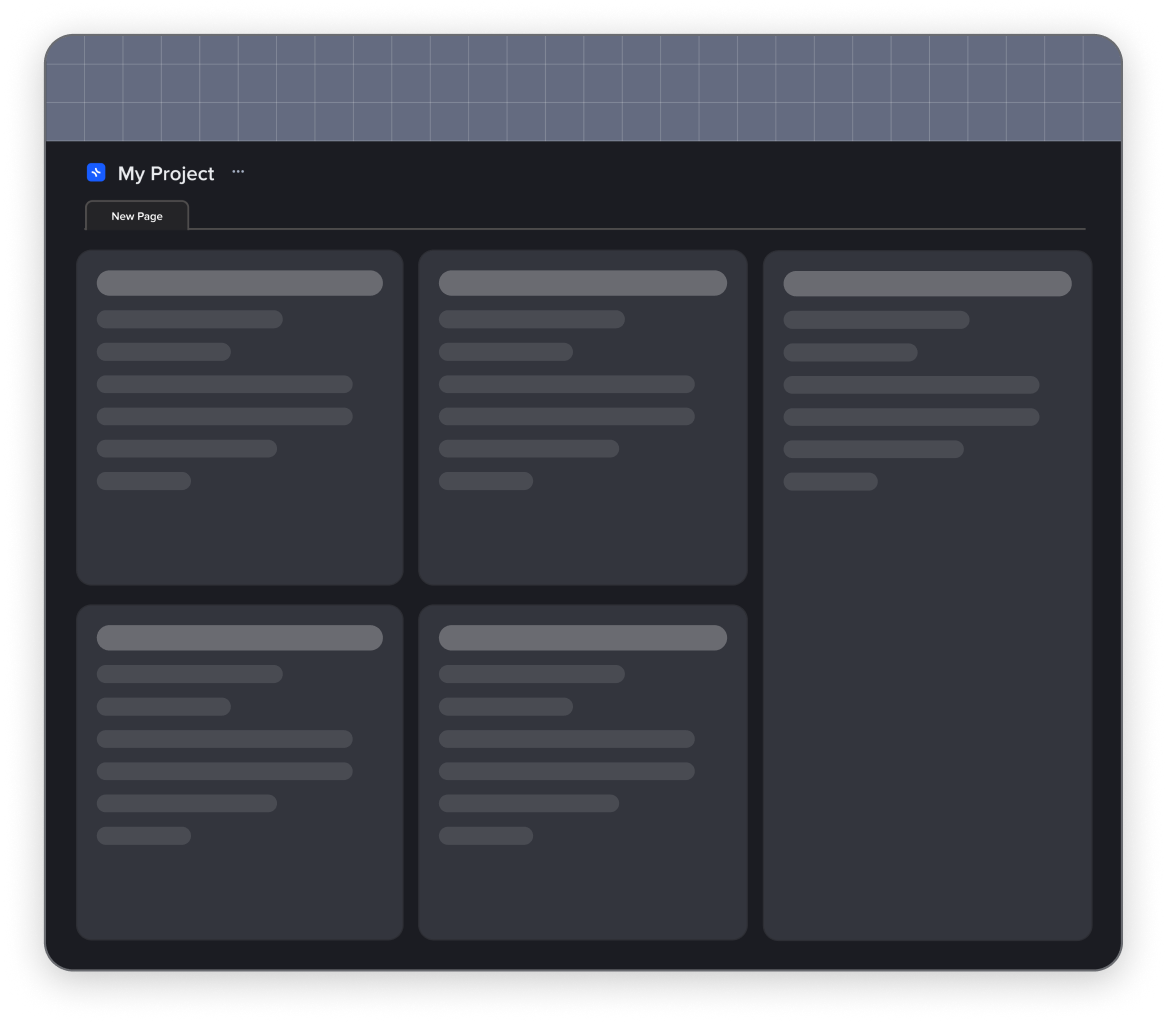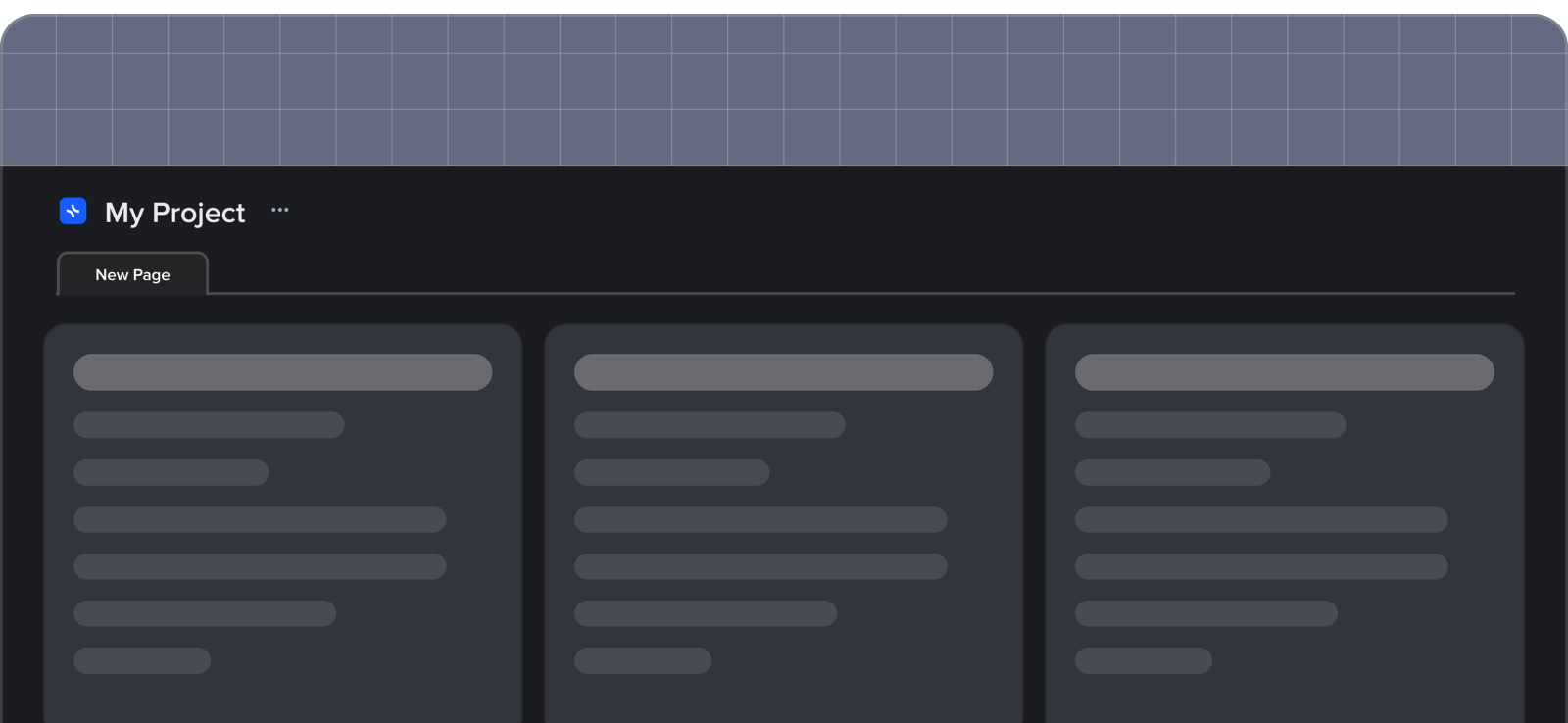Tiredness is the new black. In a world where everyone tries to be as functional as possible and then a bit more to prove they are better than anyone else, physical health and mental well-being aren’t priorities anymore.
People throw themselves into multiple tasks, and think that mental fatigue is a normal thing. After all, our ancestors fought wild animals and gave birth in the fields, so how can we complain about long hours in comfortable offices with orthopedic chairs? The thing is, their lives were completely different. Their mammoths are our depression, lack of motivation, not getting enough sleep, etc.
Modern life isn’t easier than it was 300, 500, or 1,000 years ago. Yes, we have vaccines and smartphones, but we also experience stress caused by this new way of life.
So, how to stay sane in this world, where your mental health seems to be less important than your performance? Reboot! Forget about your responsibilities, at least for a while, to clear your overwhelmed mind.
Let’s take a closer look at brain function, how to be productive without harming it, and how to reset your brain.
Understanding brain fatigue
Brain fatigue (also called mental fatigue or cognitive fatigue) is a temporary condition where the brain becomes overtaxed and struggles to function optimally. It happens due to prolonged periods of cognitive activity or demanding mental tasks.
Your prefrontal cortex, responsible for planning and decision-making, starts fighting with your limbic system (responsible for doing what feels good at the moment), presenting you with these “symptoms”:
- It’s hard to make decisions. Even deciding what to have for dinner might be a struggle, let alone making serious decisions like changing a job or buying a new house.
- Brain fatigue makes it harder to maintain concentration and stay attentive to tasks, leading to frequent distractions and a wandering mind. Even your favorite tasks might become a burden when your brain needs rest.
- Both short-term and long-term memory functions can be affected when your brain is overwhelmed, making it difficult to recall information or retain new knowledge effectively.
- Mental processes may become sluggish, with slower reaction times, processing speeds, and response times.
- Simple tasks that would normally require minimal effort may feel more mentally taxing when the brain is fatigued.
- Brain fatigue can also impact emotional regulation, leading to irritability, anxiety, or mood swings.
How many matches did you get? Even one should ring a bell. Let’s see how you can reset your brain with xTiles to increase your cognitive performance.
Strategies for resetting your brain with xTiles

Slowly but steadily, mental health becomes a priority for more and more people. They build their daily lives, keeping in mind that they are just humans and not made of steel, which means they need rest.
The best example and metaphor for fighting brain fatigue is computers and other devices. Even though they are supposed to work without issues, they break, get stuck, and freeze from time to time when their capacity can’t match your demand. And what do we do once something is wrong? We reset them. Our brains are much more complex and beautiful than the newest smartphone, but they still need it.
Let’s see some of the most effective ways to help your brain get rest and how xTiles can help you.
Increase physical activity
We were built to be active and move all the time. That’s how our ancestors used to find food and how they inhabited the whole planet.
The world changed hugely in the last 300 years, probably even more than it had changed in the last few thousand years. However, evolution and our bodies don’t change that fast. In some sense, we are still those ancient people built to move miles and miles a day to find what to eat. Unfortunately, calories (energy) have never been easier and cheaper to get.
That’s why we have to change our vector and take walks because they are fun, not because our family might stay hungry. Physical activity helps to fight depression. When you’re feeling blue, a quick stroll will make you feel better. Also, walks are good for your overall health. They’re a great replacement for gyms if, due to some reasons, you can’t exercise.
If physical activity is something new for you, you may need help to make it a part of your everyday life. xTiles offers you a few templates for tracking your activity, setting goals, and seeing your progress over time.

Try the xTiles Progress Page Template if your goal is to lose some weight and get a healthier and stronger body.
Get rid of bad habits
Our habits define our lifestyle. A bad habit has more impact on your brain capacity and productivity than you might think. It steals your energy that you could put into something that can bring positive benefits. However, changes are never easy. When you get rid of something, you usually need to replace it, and it depends on you whether it will be another bad habit or something positive.
Good habits need more time to become natural. Research shows that everyone is unique and has their own habit-building timeline. Also, if a habit you’re about to work on is something completely alien to your lifestyle, you may need even more time.

Try the xTiles Habit Tracker Template if you try to implement good habits into your routine.
Stop eating processed foods and control your diet
We are what we eat. There’s no need to turn into broccoli, but there’s a need to eat more whole, unprocessed food to stay healthy, both mentally and physically. Also, your diet has an impact on your memory, motor skills, and ability to focus, etc. Fast carbohydrates do a bad trick to your brain, just like fat-free food. It’s important to control the macro and micronutrients you consume.
Radical approaches like cutting off bread (because of gluten) or milk (because of lactose) require medical tests and a doctor’s appointment first. In other words, if you’re not lactose intolerant and don’t have celiac disease, bread and milk won’t hurt you (if you don’t eat them too much).
So, your diet has to be balanced if you want a positive impact. Most people think that they can control what they eat without any help. However, in this fast-paced world, it’s almost impossible to maintain a healthy diet without meal planning.

You can try the xTiles Meal Planner Template to plan your meals for a week without missing something vital and nutritious.
A few more effective ways to reset your brain
Better focus, improved memory, and increased productivity don’t come easily. After all, you spent years getting brain fatigue. More activity, better food, and better habits might not be enough to restore your brain capacity. They are the first step to new, better, and more self-aware living.
Here are more tips to reset your brain:
Decrease your screen time
After 8 hours of work, 2 hours of commuting, and God knows how many hours of home chores, we need time for ourselves. Usually, people lend this time from tomorrow, spending more time on their devices than is needed.
According to many studies, blue light from our phones and laptops seriously impacts our eyes, sleep, and overall health. It would be an intelligent decision to lower your daily screen time, at least at home, if you can’t control it while in the office.
Try to read a book instead when you’re in bed if you’re not ready to lie and wait until you fall asleep. Reading is another useful habit you can try to develop. This way, you will kill two birds with one stone: replace your phone and get a good habit.

You can try the xTiles Reading List Template to motivate yourself to read more.
Practice meditation
Meditation is a great way to relax mentally and physically. In case you try and see that your brain is restless and can’t stop thinking one thought after another, you need it. Let it be only 5 minutes first. You will still see the results and progress after some time.
The ability to release your brain from all thoughts is a skill that needs to be trained.
Spend more time outside
We’re more like plants than it might seem. We need fresh air and sun to be healthy and have energy. Thankfully, the pandemic is over, and you can go out whenever you want to get your vitamin D. Try to have a longer walk to your office in the morning while it’s sunny, or try to have your lunch outside.
Disclaimer: Don’t forget about applying SPF when outside. After all, our goal is to be healthy.
Spend more time with your friends
You can mix this tip with the previous one and take your friend to a park, forest, national park, etc. Sometimes, hanging out with people you love can overcome all the rest tips to have your brain reboot.
Go to bed earlier
Our brain works 24/7, and it deserves a proper 8-hour rest to do its job peacefully. If you’re not ready to do it for yourself, do it for your brain.
Take a break
Nothing works? Take a break. A vacation is not a luxury, not a gift from your employer; it’s a necessity and your legal right.
Summing up
Today, brain fatigue has become an increasingly common issue. As we strive to be ever more productive and functional, our mental well-being often takes a backseat. However, neglecting our cognitive health can lead to a host of problems, including impaired decision-making, poor concentration, memory issues, and emotional dysregulation.
Fortunately, there are effective strategies we can employ to reset our brains and regain mental clarity and focus. Incorporating physical activity, breaking bad habits, and adopting a balanced, whole-food diet are crucial first steps. But we mustn’t stop there.
Reducing screen time, practicing meditation, spending time outdoors, nurturing social connections, and prioritizing adequate sleep are all powerful tools for rejuvenating our cognitive faculties. And when all else fails, sometimes a complete break is precisely what our overworked brains need.
Resetting our brains is an ongoing process, one that requires consistent effort and a commitment to self-care. But by embracing these strategies and leveraging the power of tools like xTiles, we can cultivate the mental resilience and cognitive sharpness necessary to thrive in our demanding modern landscape.

FAQ
How can I reset my brain naturally?
Increase physical activity and spend more time outdoors – a quick walk can provide an instant reboot. Practice meditation to quiet your restless mind and release accumulated stress.
How to reboot your brain in 30 seconds?
Take a few deep breaths and give your eyes a break from screens. Stepping away briefly can provide a quick mental reset.
How do I reset my brain to default?
There is no true “default” for our ever-adapting brains. But making lifestyle changes like getting enough sleep and be more active physically can do the thing.
How do I reset my brain from bad habits?
Replace bad habits with positive ones through conscious effort. Use tools like xTiles Habit Tracker template to build new routines.


